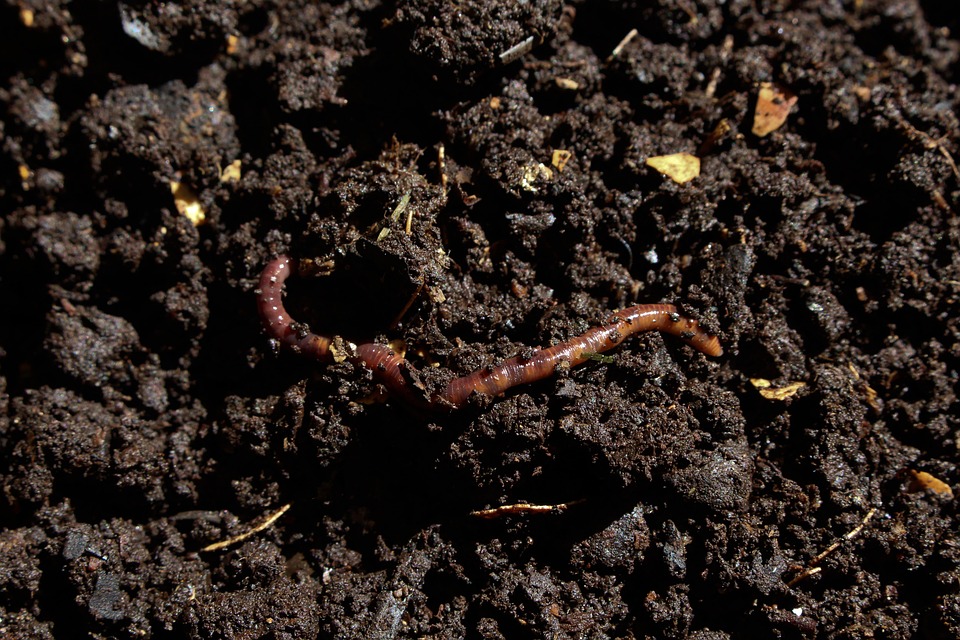Organic Compost Soil Enrichment

Healthy soil is the foundation of productive farming and gardening, and organic compost plays a vital role in maintaining that balance. Composting is the natural process of recycling organic matter such as kitchen scraps, garden waste, and farm residues into a nutrient-rich soil conditioner. Unlike chemical fertilizers, which provide only temporary nutrition, organic compost enhances soil structure, fertility, and microbial activity, creating a sustainable environment for long-term growth.
Organic compost is often referred to as “black gold” by farmers and gardeners, and for good reason. It improves the soil’s ability to retain moisture, ensures proper aeration, and provides a slow release of essential nutrients such as nitrogen, phosphorus, and potassium. Moreover, composting reduces the volume of waste that would otherwise end up in landfills, making it an eco-friendly solution that benefits both the environment and agriculture.
The beauty of organic compost lies in its versatility. It can be used in vegetable gardens, potted plants, lawns, or even large-scale agricultural fields. By enriching the soil with organic matter, it encourages the growth of beneficial microorganisms that naturally protect plants from pests and diseases. This creates a healthier ecosystem where plants thrive without the overuse of synthetic inputs.
As the demand for sustainable farming practices grows, organic compost has become an indispensable tool for modern agriculture and home gardening alike. It not only nourishes the soil but also promotes biodiversity, reduces dependency on harmful chemicals, and supports eco-conscious living.
In this complete guide, we will explore the process of making compost, its numerous benefits, practical applications, and tips to maximize its potential. With organic compost, you don’t just feed your plants—you build the very foundation for lasting soil health.
Benefits of Organic Compost
Organic compost is more than just decomposed waste—it’s a powerhouse of nutrients that revitalizes the soil. One of its main benefits is enhancing soil fertility. Compost enriches the soil with essential nutrients like nitrogen, phosphorus, potassium, and trace minerals, which promote robust plant growth. Unlike synthetic fertilizers, it releases nutrients slowly, ensuring plants have a steady supply over time.
Another significant advantage is improving soil structure. Compost helps bind soil particles together, creating a crumbly texture that enhances aeration and water retention. This is particularly beneficial for sandy or clay soils, as it balances moisture retention and drainage, creating an ideal environment for roots to thrive.
Additionally, compost boosts microbial activity. Beneficial microorganisms in compost break down organic matter and convert it into nutrients that plants can absorb. These microbes also suppress harmful pathogens, reducing the need for chemical pesticides and promoting healthier plant growth.
How to Make Organic Compost
Creating organic compost is simple and can be done using kitchen scraps, garden waste, and other biodegradable materials. Start by collecting organic waste like vegetable peels, fruit scraps, leaves, grass clippings, and coffee grounds. Avoid adding meat, dairy, or oily foods, as they can attract pests and slow decomposition.
Next, layer the materials in a compost bin or pile, alternating “green” nitrogen-rich items (kitchen scraps, fresh grass) with “brown” carbon-rich items (dry leaves, cardboard, straw). This balance helps maintain proper airflow and accelerates decomposition.
Maintain the compost pile by turning it every few weeks to ensure aeration and even decomposition. Moisture is crucial—keep the pile damp but not waterlogged. Over a few months, the materials break down into dark, crumbly compost with a rich earthy smell, ready to nourish your soil.
Applications of Organic Compost
Organic compost can be applied in various ways to maximize its benefits. It can be mixed directly into garden beds or pots, used as a top dressing for lawns, or incorporated into agricultural fields to improve soil fertility and crop yields. Compost also works well as a mulch, helping retain soil moisture, suppress weeds, and regulate soil temperature.
Tips for Effective Composting
- Chop large materials before adding them to the pile for faster decomposition.
- Maintain a balance between green and brown materials to prevent odor and promote nutrient-rich compost.
- Use a compost thermometer to monitor the temperature; ideal composting occurs between 55–65°C.
- Harvest finished compost periodically and allow it to cure for a few weeks before use.
Conclusion
Organic compost is a cornerstone of sustainable gardening and farming, offering a natural way to enrich soil and nurture healthy plant growth. Unlike chemical fertilizers, compost not only provides essential nutrients like nitrogen, phosphorus, and potassium but also improves soil structure, water retention, and aeration. Its ability to foster beneficial microorganisms helps protect plants from diseases and reduces the need for synthetic chemicals, creating a healthier and more balanced ecosystem.
The process of making organic compost is simple, cost-effective, and environmentally friendly. By recycling kitchen scraps, garden waste, and other biodegradable materials, gardeners and farmers can reduce landfill waste while producing a nutrient-rich soil conditioner. Regular use of compost enhances soil fertility over time, promotes robust root systems, and supports sustainable crop yields, making it an invaluable investment in long-term soil health.
Whether you are tending a small home garden, a balcony setup, or managing large agricultural fields, organic compost provides the foundation for thriving plants.
Ready to transform your garden or farm with nutrient-rich organic compost?
Discover the power of natural soil enrichment and give your plants the foundation they deserve!
Visit us today at Indochem Agrovet to explore a wide range of organic fertilizers, compost, and soil enhancers designed to boost growth naturally. Our experts are here to guide you on choosing the right products for your garden, terrace, or agricultural fields.
📞 Call us now: +91 9830 720311 / 83369-77770
🏢 Mumbai: Parewala House No.4, Vakola, Santacruz (East), Mumbai 400055
🏢 Kolkata: Block – DD, House no-197, 1st Floor, Street no-295, Action Area-1, New Town, Kolkata, West Bengal 700156
Don’t wait—nourish your soil, grow healthier plants, and embrace eco-friendly gardening today with Indochem Agrovet!

